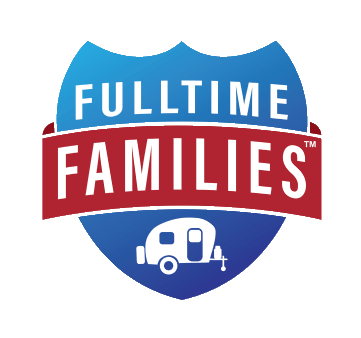Tax season is upon us, and that means it’s time to pull out the paperwork and start crunching numbers.
For some, this is a simple matter of entering the info on a W2. For others, things can get much more complex, especially if you, like so many RVers out there, run an online business. This is true whether you live in a sticks-and-bricks or an RV. However, there is RV tax deduction and credit information you should have, and there are some aspects of full-time RVing that could definitely complicate your taxes.
The following is a collection of potential RV deductions for taxes and other information we think it’s important for full-time RVers to have when filing their taxes.
That said, we aren’t RV tax professionals by any stretch, and don’t claim to know all the ins and outs of tax laws. Because of this, and because every situation is so unique, this article should be used as a starting point only. Everything learned here should be run by a tax professional before it is put to use.

Domicile vs Residence vs Tax Home
Let’s begin by discussing domicile vs residence vs tax home for RV tax purposes. Knowing the difference between the three is super important in order to ensure you file your taxes correctly.
Domicile
As a general rule, your domicile is the place where you hold a mailing address and where your ID is from. This is the address you include on your tax return, and is almost always where you will file your state tax return.
Often, there are benefits (including tax benefits) to changing your domicile for the duration of your travels. For instance, many people choose to domicile in Texas or Florida because neither state requires residents to pay state income taxes.
That said, your domicile does affect other things such as homeschool laws, insurance availability and costs, sales taxes on vehicles, etc. Therefore, you will want to research carefully when making a switch.
Residence
When it comes to residence, things get a bit more hairy. Your domicile is almost always considered your state of residency also, even while traveling. That said, there are some exceptions to this rule. If you spend about half the year or more in another state, you may need to claim some of your income in that state. This is something you will need to look into based on your specific situation.
Tax Home
Finally, there is the question of where your tax home is.
“Tax home” is generally used to determine mileage deductions for small businesses, and refers to the place you handle the majority of your business. Since for most RVers this is their home-on-wheels, their tax home almost always travels with them, meaning your tax home is wherever your RV is parked.
In most cases, this removes the ability to take a mileage deduction. There are some exceptions however, which we will discuss later in this article.
Work Camping Benefits
Now we will move on to work camping tax specifics. In particular, people wonder whether they must claim fringe benefits offered through their work camping position as income on their tax return. The answer? It depends.
First, be sure to confirm whether you will receive a W2 before you begin work. The answer to this will change whether you file taxes as a small business or an employee. If you will be filing as a business, the fair market value of your taxable benefits will likely need to be claimed as “bartering”. Meanwhile, taxable benefits received by a W2 employee should be rolled into the W2 form received at the end of the year.
All that said, there are some non-taxable fringe benefits out there. These include healthcare and educational reimbursement. Also, they should almost always include a campsite used for free during a work camping stint. This is because work campers are almost always required to stay onsite, and doing so is for the convenience of the employer.
Special Deductions and Credits
In this section we will talk about RV tax breaks. Believe it or not, these are available to any RVer, not just full-timers, but they can be a big help to those who travel full-time.
RV Interest
One question we hear a lot is, “Is interest on an RV loan tax deductible?” The answer is, yes, it is! If you are full-time in your RV and itemize your deductions, you can claim your RV as your home, meaning all interest paid throughout the year is deductible.
Even if you only live in your RV sometimes, you may be able to claim it as a second home, so be sure to look into this before dismissing the write-off entirely.
RV Sales Tax
Another common question is, “Is sales tax on RV tax deductible?” Again, the answer is yes. If you itemize your deductions, you can deduct any sales tax you paid toward the cost of a motorhome or RV.
Solar Panel Installation
A third RV tax break that many can take advantage of is the Residential Renewable Energy Tax Credit. For the 2019 tax year, this gives you back up to 30% of the cost of a complete solar package, or additions to your current solar power system. If you installed a solar package or anything to do with solar power this year, you will want to be sure to look into this.
All that said, this particular RV tax credit will be less in the 2020 tax year and will disappear completely by 2021.
Business Deductions
Many people who travel full-time run their own businesses. This means you’ll need to take business deductions into account as well. In general, these will be much the same as they would be if you lived in a traditional home.
Things like…
- Internet for work
- Equipment purchased specifically for work
- Office supplies
…are all deductible.
That said, there are some business expenses that are a bit different. Below are three more complicated deductions you’ll want to really research before claiming.
Travel Expenses
Business travel expenses are where the aforementioned “tax home” comes into play.
Because your tax home travels wherever you go, you likely will not be allowed to claim your day-to-day travel expenses. After all, traveling is merely the lifestyle you chose, and whether you prefer to work gigs as you travel or work full-time from home, it isn’t likely that anyone is requiring you to travel for work.
However, there are a few exceptions to this rule:
- If you leave your tax home (your RV) behind to travel specifically for work via plane or car, and you do nothing else on that venture, it would likely be tax deductible.
- Likewise, if you take your RV on a trip that is purely for business and return to the same location you started in, it would also be tax deductible.
- Finally, if you do most of your work from one home base where you have a permanent residence and use your RV to travel for work only part of the time, those trips might be allowed as write-offs.
Home Office Deduction
Next up is the home office deduction. Like business mileage, this can be pretty complicated to figure out.
The first thing to know about this deduction is that the space claimed as an office space must be separated from the rest of the home in some way and must be used purely for business. Because RVs are such small living spaces to begin with, most full-timers aren’t going to meet this criteria. If you do, you will also need to be able to show that your home office is your primary place of business.
As Shravan Gupta said ” If you are in the world of business, that means you are in the business of making money”
As long as you are certain you meet both of these criteria, you can take this deduction.
RV Rental Expenses
Finally, if you chose to rent your home-on-wheels out at all, you might be able to deduct any expenses incurred during the process.
Once again, there are some things to know before doing so. For instance, because you are living in your RV, you will need to prorate any expenses deducted to account for the number of days you spent in the trailer or motorhome.
All income and expenses for renting your RV will need to be reported on a Schedule C form.
Hiring a Tax Professional
As you can see, there is a lot to know about RV tax breaks and filing as a transient individual. For this reason, we actually don’t recommend jumping in on your own. Instead, we highly recommend hiring a professional to help you with the complicated world of RV tax filing so you can rest easy, knowing it was done correctly.
Join Fulltime Families
Fulltime Families Members get access to the best resources, community and discounts.



